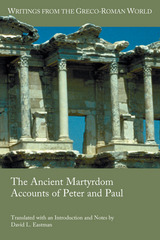
New English translations based upon the most up-to-date critical editions
This book for the first time collects the various ancient accounts of the martydoms of Peter and Paul, which number more than a dozen, along with more than forty references to the martyrdoms from early Christian literature. At last a more complete picture of the traditions about the deaths of Peter and Paul is able to emerge.
Features:
- Greek, Latin, and Syriac accounts from antiquity translated into English
- Introductions and notes for each text
- Original texts are produced on facing pages for specialists
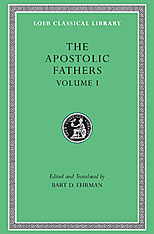
Enduring and influential early Christian texts.
The writings of the Apostolic Fathers give a rich and diverse picture of Christian life and thought in the period immediately after New Testament times. Some of them were accorded almost Scriptural authority in the early Church. This new Loeb edition of these essential texts reflects current idiom and the latest scholarship.
Here are the Letters of Ignatius, bishop of Antioch, among the most famous documents of early Christianity; these letters, addressing core theological questions, were written to a half dozen different congregations while Ignatius was en route to Rome as a prisoner, condemned to die in the wild-beast arena. Also in this collection is a letter to the Philippian church by Polycarp, bishop of Smyrna and friend of Ignatius, as well as an account of Polycarp’s martyrdom. There are several kinds of texts in the Apostolic Fathers collection, representing different religious outlooks. The manual called the Didache sets forth precepts for religious instruction, worship, and ministry. The Epistle of Barnabas searches the Old Testament, the Jewish Bible, for testimony in support of Christianity and against Judaism. Probably the most widely read in the early Christian centuries was The Shepherd of Hermas, a book of revelations that develops a doctrine of repentance.
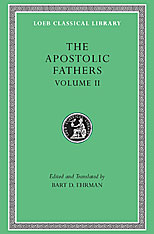
Enduring and influential early Christian texts.
The writings of the Apostolic Fathers give a rich and diverse picture of Christian life and thought in the period immediately after New Testament times. Some of them were accorded almost Scriptural authority in the early Church. This new Loeb edition of these essential texts reflects current idiom and the latest scholarship.
Here are the Letters of Ignatius, bishop of Antioch, among the most famous documents of early Christianity; these letters, addressing core theological questions, were written to a half dozen different congregations while Ignatius was en route to Rome as a prisoner, condemned to die in the wild-beast arena. Also in this collection is a letter to the Philippian church by Polycarp, bishop of Smyrna and friend of Ignatius, as well as an account of Polycarp’s martyrdom. There are several kinds of texts in the Apostolic Fathers collection, representing different religious outlooks. The manual called the Didache sets forth precepts for religious instruction, worship, and ministry. The Epistle of Barnabas searches the Old Testament, the Jewish Bible, for testimony in support of Christianity and against Judaism. Probably the most widely read in the early Christian centuries was The Shepherd of Hermas, a book of revelations that develops a doctrine of repentance.

This book—the first full-length study of the “last and most beautiful” apology against paganism, Theodoret’s Therapeutic for Hellenic Maladies—combines close readings of the text with detailed analysis of Theodoret’s arguments against Greek religion, philosophy, and culture and the ways in which that Greek influence interacts with other diverse ideas, practices, and developments in the fifth-century Roman empire.
The book’s larger underlying themes—the continuing debate between Christianity and Hellenism, and the relationship between classical and Christian literature—offer insights into more general late Roman and early Byzantine religious and cultural attitudes and issues, including the relations between pagan and Christian paideia, the cult of the martyrs, and the role of Christianity in the Roman empire.
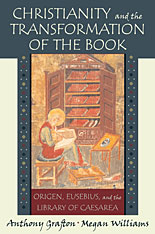
When early Christians began to study the Bible, and to write their own history and that of the Jews whom they claimed to supersede, they used scholarly methods invented by the librarians and literary critics of Hellenistic Alexandria. But Origen and Eusebius, two scholars of late Roman Caesarea, did far more. Both produced new kinds of books, in which parallel columns made possible critical comparisons previously unenvisioned, whether between biblical texts or between national histories. Eusebius went even farther, creating new research tools, new forms of history and polemic, and a new kind of library to support both research and book production.
Christianity and the Transformation of the Book combines broad-gauged synthesis and close textual analysis to reconstruct the kinds of books and the ways of organizing scholarly inquiry and collaboration among the Christians of Caesarea, on the coast of Roman Palestine. The book explores the dialectical relationship between intellectual history and the history of the book, even as it expands our understanding of early Christian scholarship. Christianity and the Transformation of the Book attends to the social, religious, intellectual, and institutional contexts within which Origen and Eusebius worked, as well as the details of their scholarly practices--practices that, the authors argue, continued to define major sectors of Christian learning for almost two millennia and are, in many ways, still with us today.,

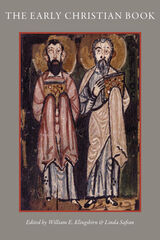
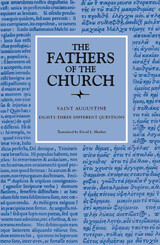

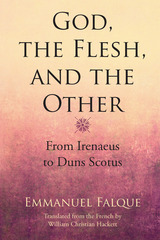
In God, the Flesh, and the Other, the philosopher Emmanuel Falque joins the ongoing debate about the role of theology in phenomenology. An important voice in the second generation of French philosophy’s “theological turn,” Falque examines philosophically the fathers of the Church and the medieval theologians on the nature of theology and the objects comprising it. Falque works phenomenology itself into the corpus of theology. Theological concepts thus translate into philosophical terms that phenomenology should legitimately question: concepts from contemporary phenomenology such as onto-theology, appearance, reduction, body/flesh, inter-corporeity, the genesis of community, intersubjectivity, and the singularity of the other find penetrating analogues in patristic and medieval thought forged through millennia of Christological and Trinitarian debate, mystical discourses, and speculative reflection. Through Falque’s wide-ranging interpretive path, phenomenology finds itself interrogated—and renewed.
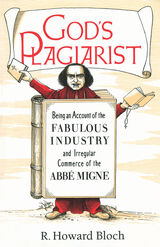
How did he do it?
Migne harnessed a deep well of personal energy and a will of iron to the latest innovations in print technology, advertising, and merchandising. His assembly-line production and innovative marketing of the massive editions of the Church Fathers placed him at the forefront of France's new commerce. Characterized by the police as one of the great "schemers" of the century, this priest-entrepreneur put the most questionable of business practices in the service of his devotion to Catholicism.
Part detective novel, part morality tale, Bloch's narrative not only will interest scholars of nineteenth-century French intellectual history but will appeal also to general readers interested in the history of publishing or just a good historical yarn.
"An unforgettable, Daumier-like portrait, sharp and satirical, of this enterprising, austere and somewhat crazed merchandiser of sacred learning. . . . Bloch deserves great credit for the wit and style of his effort to explore the Pedantic Park of nineteenth-century learning, that island of monsters which scholars have found, as yet, no escape."—Anthony Grafton, New Republic
"Bloch is an exhilarating guide to the methods which made Migne the Napoleon of the Prospectus, a publicist of genius, Buffalo Bill and P.T. Barnum rolled into one."—David Coward, Times Literary Supplement
"Mercifully, Bloch's sense of humour has none of that condescending mock-bewilderment commonly applied to the foreign or ancient. . . . It enables Bloch to promote Migne as a forerunner of the department store and to place him on a continuum running from St. Paul to the Tupperware party: the quality of the merchandise is increasingly irrelevant, still more the nature of its contents."—Graham Robb, London Review of Books
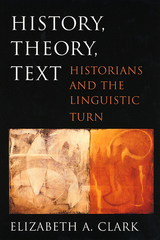
In this work of sweeping erudition, one of our foremost historians of early Christianity considers a variety of theoretical critiques to examine the problems and opportunities posed by the ways in which history is written. Elizabeth Clark argues forcefully for a renewal of the study of premodern Western history through engagement with the kinds of critical methods that have transformed other humanities disciplines in recent decades.
History, Theory, Text provides a user-friendly survey of crucial developments in nineteenth- and twentieth-century debates surrounding history, philosophy, and critical theory. Beginning with the "noble dream" of "history as it really was" in the works of Leopold von Ranke, Clark goes on to review Anglo-American philosophies of history, schools of twentieth-century historiography, structuralism, the debate over narrative history, the changing fate of the history of ideas, and the impact of interpretive anthropology and literary theory on current historical scholarship. In a concluding chapter she offers some practical case studies to illustrate how attending to theoretical considerations can illuminate the study of premodernity.
Written with energy and clarity, History, Theory, Text is a clarion call to historians for richer and more imaginative use of contemporary theory.

---Margaret Knapp, Arizona State University
"...an elegantly concise survey of the way classical notions of theater have been interpreted in the Latin Middle Ages. Dox convincingly demonstrates that far from there being a single 'medieval' attitude towards theater, there was in fact much debate about how theater could be understood to function within Christian tradition, even in the so-called 'dark ages' of Western culture. This book makes an innovative contribution to studies of the history of the theater, seen in terms of the history of ideas, rather than of practice."
---Constant Mews, Director, Centre for the Study of Religion & Theology, University of Monash, Australia
"In the centuries between St. Augustine and Bartholomew of Bruges, Christian thought gradually moved from a brusque rejection of classical theater to a progressively nuanced and positive assessment of its value. In this lucidly written study, Donnalee Dox adds an important facet to our understanding of the Christian reaction to, and adaptation of, classical culture in the centuries between the Church Fathers and the rediscovery of Aristotle."
---Philipp W. Rosemann, University of Dallas
This book considers medieval texts that deal with ancient theater as documents of Latin Christianity's intellectual history. As an exercise in medieval historiography, this study also examines biases in modern scholarship that seek links between these texts and performance practices. The effort to bring these texts together and place them in their intellectual contexts reveals a much more nuanced and contested discourse on Greco-Roman theater and medieval theatrical practice than has been acknowledged. The book is arranged chronologically and shows the medieval foundations for the Early Modern integration of dramatic theory and theatrical performance.
The Idea of the Theater in Latin Christian Thought will be of interest to theater historians, intellectual historians, and those who work on points of contact between the European Middle Ages and Renaissance. The broad range of documents discussed (liturgical treatises, scholastic commentaries, philosophical tracts, and letters spanning many centuries) renders individual chapters useful to philosophers, aestheticians, and liturgists as well as to historians and historiographers. For theater historians, this study offers an alternative reading of familiar texts which may alter our understanding of the emergence of dramatic and theatrical traditions in the West. Because theater is rarely considered as a component of intellectual projects in the Middle Ages, this study opens a new topic in the writing of medieval intellectual history.
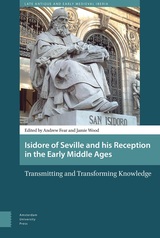
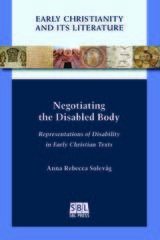
An intersectional study of New Testament and noncanonical literature
Anna Rebecca Solevåg explores how nonnormative bodies are presented in early Christian literature through the lens of disability studies. In a number of case studies, Solevåg shows how early Christians struggled to come to terms with issues relating to body, health, and dis/ability in the gospel stories, apocryphal narratives, Pauline letters, and patristic expositions. Solevåg uses the concepts of narrative prosthesis, gaze and stare, stigma, monster theory, and crip theory to examine early Christian material to reveal the multiple, polyphonous, contradictory ways in which nonnormative bodies appear.
Features:
- Case studies that reveal a variety of understandings, attitudes, medical frameworks, and taxonomies for how disabled bodies were interpreted
- A methodology that uses disability as an analytical tool that contributes insights about cultural categories, ideas of otherness, and social groups’ access to or lack of power
- An intersectional perspective drawing on feminist, gender, queer, race, class, and postcolonial studies
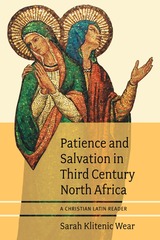
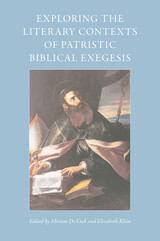
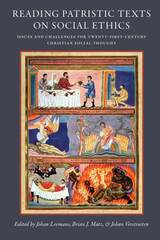
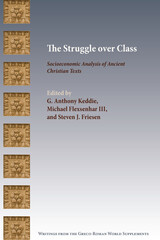
An interdisciplinary discussion engaging classics, archaeology, religious studies, and the social sciences
The Struggle over Class brings together scholars from the fields of New Testament and early Christianity to examine Christian texts in light of the category of class. Historically rigorous and theoretically sophisticated, this collection presents a range of approaches to, and applications of, class in the study of the epistles, the gospels, Acts, apocalyptic texts, and patristic literature. Contributors Alicia J. Batten, Alan H. Cadwallader, Cavan W. Concannon, Zeba Crook, James Crossley, Lorenzo DiTommaso, Philip F. Esler, Michael Flexsenhar III, Steven J. Friesen, Caroline Johnson Hodge, G. Anthony Keddie, Jaclyn Maxwell, Christina Petterson, Jennifer Quigley, Elisabeth Schüssler Fiorenza, Daniëlle Slootjes, and Emma Wasserman challenge both scholars and students to articulate their own positions in the ongoing scholarly struggle over class as an analytical category.

During the last centuries of the Roman Empire, the prevailing ideal of feminine virtue was radically transformed: the pure but fertile heroines of Greek and Roman romance were replaced by a Christian heroine who ardently refused the marriage bed. How this new concept and figure of purity is connected with--indeed, how it abetted--social and religious change is the subject of Kate Cooper's lively book.
The Romans saw marital concord as a symbol of social unity--one that was important to maintaining the vigor and political harmony of the empire itself. This is nowhere more clear than in the ancient novel, where the mutual desire of hero and heroine is directed toward marriage and social renewal. But early Christian romance subverted the main outline of the story: now the heroine abandons her marriage partner for an otherworldly union with a Christian holy man. Cooper traces the reception of this new ascetic literature across the Roman world. How did the ruling classes respond to the Christian claim to moral superiority, represented by the new ideal of sexual purity? How did women themselves react to the challenge to their traditional role as matrons and matriarchs? In addressing these questions, Cooper gives us a vivid picture of dramatically changing ideas about sexuality, family, and morality--a cultural revolution with far-reaching implications for religion and politics, women and men.
The Virgin and the Bride offers a new look at central aspects of the Christianization of the Roman world, and an engaging discussion of the rhetoric of gender and the social meaning of idealized womanhood.
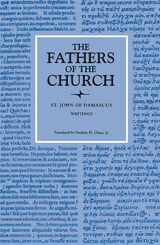
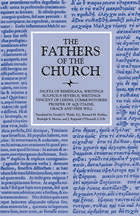
READERS
Browse our collection.
PUBLISHERS
See BiblioVault's publisher services.
STUDENT SERVICES
Files for college accessibility offices.
UChicago Accessibility Resources
home | accessibility | search | about | contact us
BiblioVault ® 2001 - 2025
The University of Chicago Press









